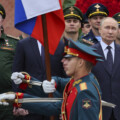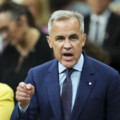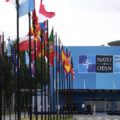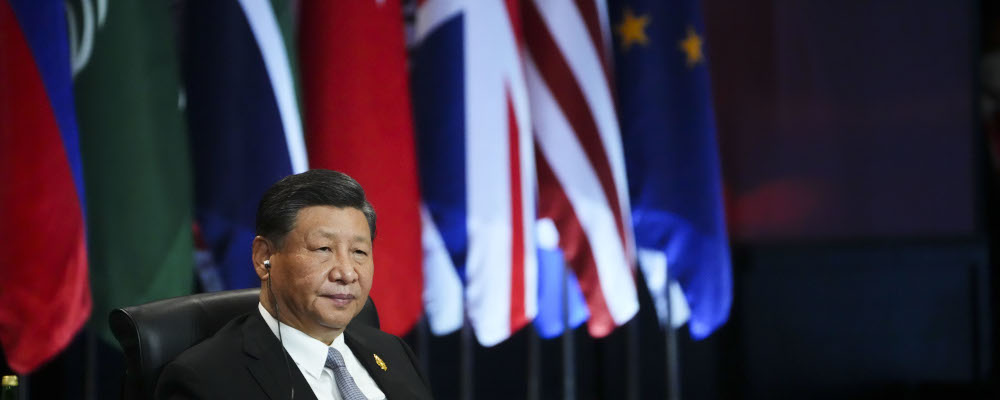If you believe the headlines, Beijing decided a few months ago to “tone down” its previously assertive foreign policy tone—a tone that, in recent years, had earned it the sobriquet “Wolf Warrior” diplomacy.
Apprehending further escalation between the U.S. and China, if not a new Cold War, a number of China hands are now counselling that the West should welcome this extended hand and believe that, this time, Beijing means what it says and is now committed to acting as a responsible stakeholder.
The problem is that we’ve seen all this before. Only by having an ahistorical view of the People’s Republic of China (PRC), or misconceptions about the nature of the Chinese Communist Party (CCP), can one believe that the Chinese regime under the firm guidance of Xi Jinping, an autocrat’s autocrat if ever there was one, is now ready to play by the established rules of international relations.
At best, Beijing’s new tone is merely tactical, taken out of necessity amid a domestic COVID crisis and a global reputation that is at a particularly low point. Even the most hardline party official in Beijing must acknowledge that much of the world has turned against the would-be superpower.
Indeed, in a meeting with President Joe Biden last year, Xi signalled his intention to repair the deteriorating relationship, paving the way for a ties-mending meeting in Beijing between the Chinese leader and the U.S. Secretary of State Anthony Blinken, which was subsequently cancelled due to the spy balloon incident. And yes, a number (albeit not all) of China’s “Wolf Warrior” ambassadors have toned down their rhetoric on social media, and an infamous spokesman for the Chinese Foreign Ministry has been dispatched to the party’s organizational Siberia.
But this ostensible change of heart is merely cosmetic, not only part of the pendulum of the PRC’s external behaviour but, more importantly, quite compatible with a simultaneous hardening of the CCP’s worldview.
The facts speak for themselves. While Beijing says it seeks to improve relations with the West, reports are emerging about a Chinese interference network that sought to meddle in the last two Canadian elections. It continues to threaten its democratic neighbour, Taiwan, with a steady regimen of provocative military activity. It provides material assistance to Russia in its bloody invasion of Ukraine, while failing to provide information to global health authorities about its current COVID surge. Indeed, China holds the international community hostage on matters such as global warming, by making its cooperation contingent on the rest of the world giving in to some of its “core interests,” which involve the genocidal treatment of an ethnic minority, the erosion of freedoms in Hong Kong, and the annexation of a peaceful democracy next door.
It is not impossible, in fact, that hardliners in Beijing deliberately used the spy balloon that overflew the continental United States last week to make it practically inevitable that Blinken’s visit to China, and therefore the possibility of de-escalation, would be torpedoed.

Xi, furthermore, has unwavering ambitions and, as Biden once put it, does not have a democratic bone in his body. Highly ideological, arguably megalomaniac, and impatient with any advice that does not reflect his ideology, the president for life has, in the wake of last fall’s Party Congress, surrounded himself with sycophants. This further makes a mockery of the notion that Beijing has somehow seen the light and decided to mend its ways.
What this means, furthermore, is that playing nice to Beijing is a fool’s errand. By engaging with the PRC as if we are dealing with a normal party-state, there is little if any chance that we are empowering more liberal voices within the CCP that, at some point, could lead the party in a more benign direction. Those voices have been extinguished, cowed into silence, or sent to jail.
Simply put, if we naively engage Beijing with the expectation that we are dealing with a regime that is genuinely committed to better behaviour, all we’ll end up doing is strengthening the Party and creating more openings for it to continue eroding the world order.
That isn’t to say that we should leave the PRC out in the cold—we can’t—but we should be clear-eyed about what it’s up to and what its intentions are, and cognizant that the nicer tone is nothing more than a tactical move.
Recommended for You

‘Putin has no intention of stopping this war’: Sir Bill Browder on three years of war in Ukraine and how Russia is evading sanctions

The Weekly Wrap: The Liberals must abandon their internet regulation agenda

‘This is going to take a carefully executed strategy’: Ann Fitz-Gerald on whether Canada will ever spend 5 percent of its GDP on defence

DeepDive: It’s time to end the boom-and-bust cycle of Canadian shipbuilding



